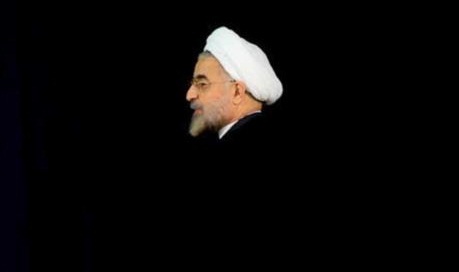 Huffington Post – Roya Boroumand Executive director, Abdorrahman Boroumand Foundation
Huffington Post – Roya Boroumand Executive director, Abdorrahman Boroumand Foundation
The new Iranian president, Hassan Rouhani, presented a new cabinet on August 5, dominated by the old guard, including many technocrats from Ali Akbar Hashemi Rafsanjani’s government (1989 to 1997.) Mr. Rafsanjani was most often described as a moderate in the West regardless of his government’s human rights record.
In 2013, once again, too few are alarmed by President Rouhani’s choice of ministers with strong intelligence backgrounds, including Mohammad Pour-Mohammadi, the proposed Minister of Justice.
Well-documented reports, including an investigation by a respected international human rights expert, Geoffrey Robertson, accuse Pour-Mohammadi of crimes against humanity. A glance at his biography validates the concerns of the human rights community, an apprehension that doesn’t seem to affect the policy world.
Pour-Mohammadi’s career is edifying. A former revolutionary prosecutor in Khuzestan, Khorasan, and Hormozgan in the period 1980-1987, the deadliest post-revolutionary years, he was promoted to be high ranking official in the Minister of Information in the late 1980s. He represented the Ministry in a three-man delegation, known as the Death Committee, that secretly sentenced to hanging political prisoners who refused to recant their beliefs in the summer of 1988. He was in charge of the Ministry’s foreign intelligence in the 1990s, at a time when scores of dissidents were assassinated inside and outside Iran and the AMIA Jewish community center was blown-up in Buenos Aires.
Numbers may be more telling in Pour-Mohammadi’s case. The number of executions in the provinces where Pour-Mohammadi has served, reported mostly by official and semi official sources and recorded in the Abdorrahman Boroumand Foundation’s database (OMID), is so far 1,172 (out of a total of 8,677 for the entire country). The death toll of the secret massacre of political prisoners in the summer of 1988 has been estimated at 4,000. The highest numbers of executions were in two prisons in Tehran and Karaj, Evin and Gohardasht, where Pour-Mohammadi was a decision maker. Most of the victims had been arrested in their teens or early twenties and were serving, or had not been released after, serving their prison terms. The list of dissidents assassinated or disappeared inside and outside Iran during the new minister of Justice’s tenure in the Ministry of Intelligence is well above 150. The 1994 AMIA bombing left behind 85 deaths and 151 injured of all ages.
The Islamic Republic’s Minister of Justice is chosen by the president from a pool of candidates proposed by the head of the Islamic Republic’s Judiciary, an institution best known for the highest per capita executions in the world, its lack of independence, and its systemic violation of due process of law. Why has President Rouhani’s agreed to nominate Pour-Mohammadi whose presence in the far-from-moderate Ahmadinejad administration had caused outrage? If an appeasement gesture towards the latter’s political faction was necessary, there is no dearth of loyal candidates to choose from.
President Rouhani has pledged to defend every single proposed minister. And he did, indeed, defend the record of the proposed justice minister in his statement to the Iranian parliament today. He referred to Pour-Mohammadi’s knowledge and experience and noted that “he has been successful, wherever he has been.” “He will not just be the Minister of Justice and the link with the Judiciary,” stressed the president, “we will put to use his numerous experiences in the government.”
Nominating Pour-Mohammadi as the Minister of Justice does not indicate moderation or any intention to release the hundreds of political prisoners wasting their youth and their lives in Iranian prisons. The new President will have to tolerate criticism if he is true to his campaign. Objecting to his choice for the Ministry of Justice of a man with such a bloody career is a moral imperative. It is also a sign of pragmatism. Foreign and internal policies are the two sides of the same coin and lasting changes in foreign policy are unlikely as long as the leadership fears its own people and has to kill or incarcerate its critics.
Those who call for accountability in the Islamic Republic are silenced. If the international community doesn’t openly question the choice of a minister of justice accused of crimes against humanity, dissidents and political prisoners such as Arabs, Kurds, Azerbaijanis, Baluchis, Sufis, Christians, Baha’is, reformers, members of banned political groups, students, journalists, writers, and bloggers cannot have much hopes in the government of “foresight and hope”. If this nomination is a warning to those who may hope for political opening or indicates new episodes of secret killings and bombings, then the time to react is now, before the Iranian parliament approves Pour-Mohammadi’s nomination.
